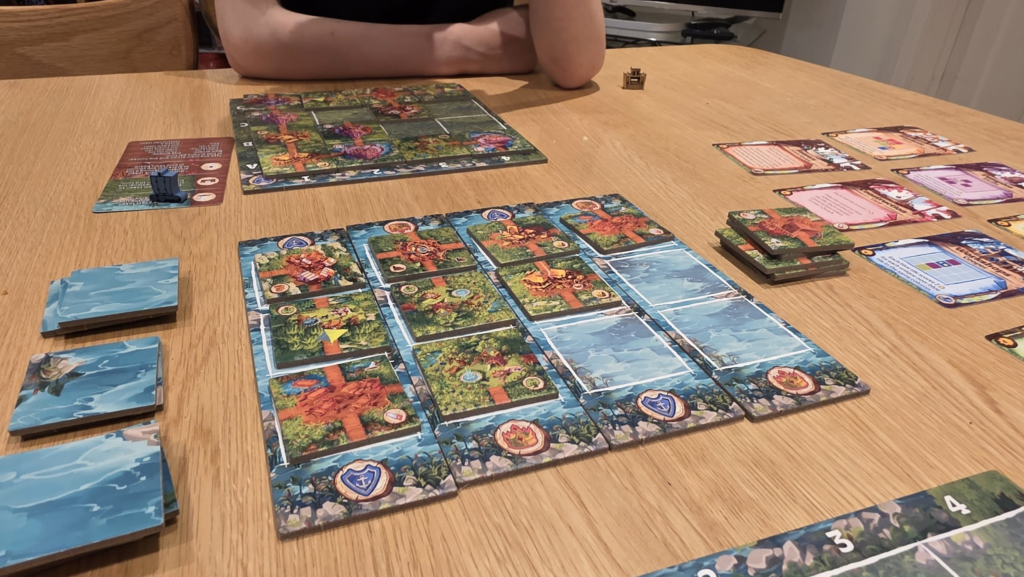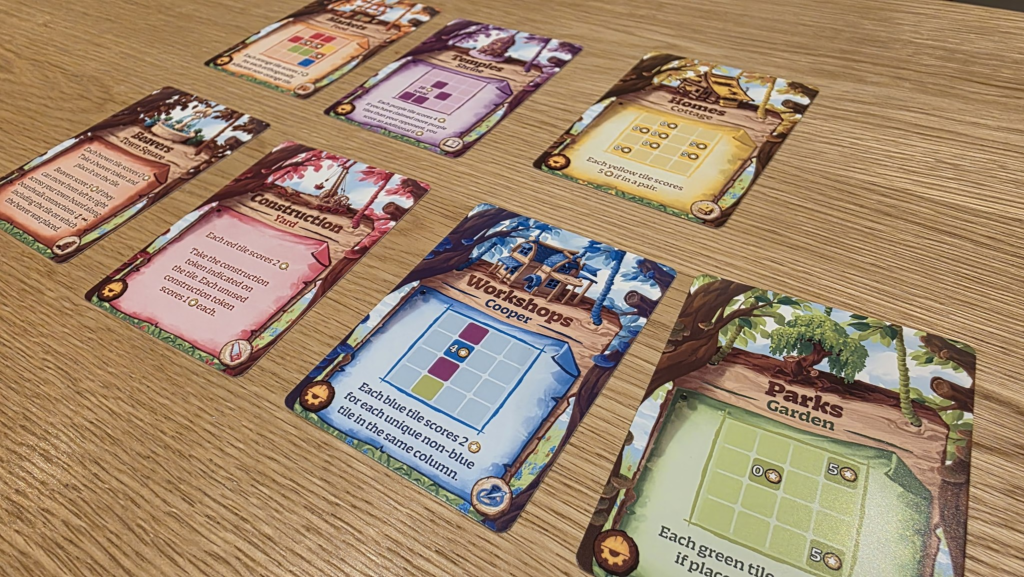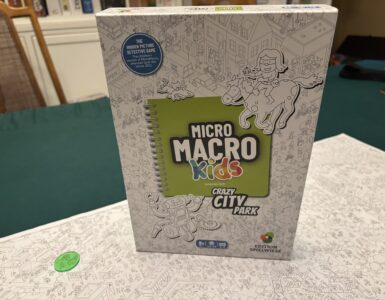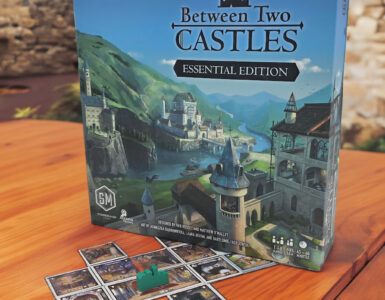Timber Town is a two-player tile drafting and tile-laying game from Alec at Alley Cat Games. I recently sat down and played a couple of games with Jack(9).
The concept of the game is that you are a beaver architect constructing a new town on the riverbank, competing against another beaver architect on the opposite side of the river. As buildings come floating down the river, you’re seeking to construct the best town possible—whoever does it best, wins!
The main focus of the game is drafting the buildings as they go past, with clever, customisable scoring objectives—which is always a welcome addition in games like this.

You start the game by setting up your town boards and piles of river tiles in stacks of three, plus the main river board in the centre of the table. On your turn, you can take a tile from anywhere on the river, but—unless you have a special token—you can only place that tile in the column it came from. So, if you want something in the last column, you might have to wait for it to float downstream… and hope the other player doesn’t grab it first! Once a tile reaches the fourth column, it falls off the edge and is discarded from the game.
As well as claiming a tile, you can also do other things, such as using a raft token (if you have one) to place a raft on a tile. This reserves it for you and stops the other player from taking it. You can also pass and take nothing, which is a perfectly reasonable thing to do—especially if you’re waiting for something to float further down the river. That’s a nice change from other games where you’re often forced to act even when you don’t want to.
Certain tiles give you tokens when you take them. These include:
- The crane token, which lets you break the rules and place a tile in any column.
- The dam token, which allows you to take an extra tile this turn—really handy when something juicy shows up!
- The beaver token, which gives you extra points if you can create a full boardwalk route from one side of your board to the other.
Just like in Carcassonne, tiles must connect neatly—paths can’t end in nothing. Early on, it’s easy to place tiles, but it definitely gets trickier as the board fills up.
The first person to complete their board scores five bonus points. After that, you add up all your points from the different building types. Each type scores differently, and the objectives can be swapped out each game, giving loads of variety and replayability.

Jack and I really enjoyed playing Timber Town. It hits a lovely level of complexity—great for parents who want something with a bit more thinking involved, but without being overwhelming. The artwork is charming, and the whole thing feels very thematic.
One thing that wasn’t ideal was the colours of the buildings. Each scoring objective links to a different colour, but telling some of them apart was quite tricky. You often had to rely on the tiny icons at the bottom of the tiles, which really could have been clearer.
Overall, we really like Timber Town. Sure, it has similarities to other tile-laying games, but it’s different enough that it feels fresh. It’s definitely one we’ll keep coming back to, and one that’s earned a permanent place in our collection. It looks great, plays smoothly, and—as with most games in the Alley Cat Essentials range—it’s a fantastic price for what you get.
Should you Play? yes
Disclaimer: “Timber Town” was kindly provided by “Alley Cat Games” for the purpose of review. Caezar Al-Jassar from Alley Cat Games is an active member of our community. Our thoughts and opinions are, however, our own.














